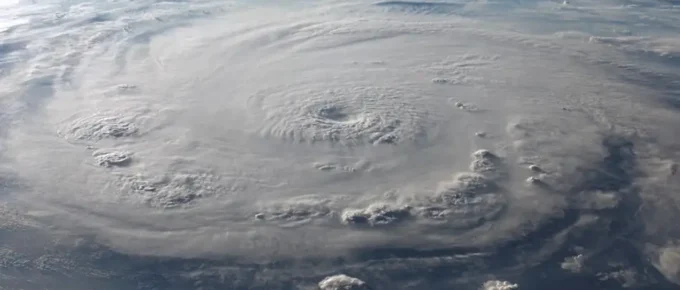
You pay for homeowner insurance every month. Knowing that you have a policy that will protect your financial interests in the event of a hurricane should give you some peace of mind. However, filing an insurance claim for hurricane damage is not always straightforward.
In many cases, insurance companies will attempt to limit the amount they pay you for hurricane damage.
When filing an insurance claim for hurricane damage, knowing your rights and what to anticipate from the insurance companies is important.
In some cases, you may also need the help of a Miami insurance attorney to help you make a full financial recovery after a hurricane.
What does homeowners insurance cover?
Unfortunately, there is no such thing as hurricane insurance. However, a standard homeowners insurance policy will typically cover wind damage.
In addition, homeowners can purchase a separate flood insurance policy.
A standard homeowner’s insurance policy in Miami will cover damage caused by hurricane-force winds. This means that if your roof or siding was damaged by wind, then the damage will be covered.
However, there is a deductible for hurricane damage in Miami, which you must pay before insurance payments can kick in.
Understanding insurance deductible
Why do insurance companies require me to pay a deductible?
A deductible is a predetermined amount that a policyholder must pay out-of-pocket before the insurance company starts covering the remaining costs of a claim.
The purpose of a deductible is twofold:
- Shared responsibility: It ensures the policyholder shares some responsibility for the loss. This risk-sharing can deter frivolous claims and help reduce the number of small claims an insurance company has to process.
- Lower premiums: Policyholders can often lower their insurance premiums by agreeing to a higher deductible. This is because they’re taking on a more significant portion of the risk themselves, which reduces the potential payout from the insurance company in the event of a claim.
What factors influence the varying amounts of insurance deductibles?
Several factors can influence the amount set for insurance deductibles:
- Type of policy: Different insurance types, like auto, home, or health, might have varying standard deductible amounts.
- Risk assessment: If an individual or property is deemed higher risk, the insurance company might set a higher deductible to offset potential frequent claims.
- Policyholder’s choice: Many insurance providers offer a range of deductible options. A policyholder might opt for a higher deductible to reduce monthly premiums or a lower one for more comprehensive coverage.
- Local regulations: In some regions, laws or regulations might influence minimum or maximum deductible amounts.
- Claim history: Individuals or entities with a history of frequent claims might face higher deductibles.
Flood damage is not covered under a standard homeowner’s insurance policy. This is an important distinction for people living in low-lying areas. Insurance companies, for example, may try to deny a claim by asserting damage to a home was caused by flooding rather than wind.
It is critical to review the terms of your homeowner’s insurance policy to clearly understand what is and what is not covered in the event of a hurricane.
If you have questions about your policy terms, consult an insurance attorney who can review the agreement terms and uncover any attempt to limit what is owed to you.
What happens when I file an insurance claim after a hurricane?
It is important to act quickly and file an insurance claim for hurricane damage as soon as possible. First, however, you will want to document your damage and take precautionary measures to prevent further damage.
What homeowners should do after a hurricane
Guide for Florida homeowners post-hurricane: Filing property damage claims, understanding insurance denials, and steps to ensure financial compensation.
Once you submit an insurance claim, your insurance company has 14 days to acknowledge and review your claim. Your insurance company must also pay or deny your claim within 90 days of receiving your insurance claim.
However, filing an insurance claim for hurricane damage can be challenging. Insurance companies may try to deny your claim, parts of your claim, delay the processing, adjust the payment, or attempt to settle your claim for less than it is worth.
Florida is no stranger to hurricanes
Peak hurricane season stretches from June 1 to November 30. Statistically, September witnessed the highest hurricane activity.
According to the National Oceanic and Atmospheric Administration (NOAA), Florida has been hit by more hurricanes than any other US state.
Notably, Hurricane Andrew in 1992 remains one of the most devastating, causing significant damage, particularly in Miami-Dade County.
Did you know?
Hurricane Andrew, which hit South Florida around August 23, is one of the most devastating storms in US history. Classified as a Category 5 hurricane, it resulted in 23 direct deaths in the US and three in the Bahamas.
With damages amounting to $27 billion in the US (in 1992 dollars) and an additional $250 million in the Bahamas, its aftermath was catastrophic. Interestingly, most of Florida’s damage was due to intense winds. The communities in Homestead were particularly hard hit. Descriptions of the aftermath likened areas like the Falls Mall to scenes where “a bomb went off.”
Source: https://www.weather.gov/news/220822-hurricane-andrews
Steps to take immediately after a hurricane
- Safety first: Ensure the safety of your family. Evacuate if necessary.
- Document damage: Take photos and videos of all property damage.
- Prevent further damage: Make temporary repairs if safe to do so.
- Contact your insurance: Report the damage and initiate the claim process.
- Review your policy: Understand what’s covered and what your responsibilities are.
- Keep records: Document all communication with the insurance company and save receipts for repairs or temporary lodging.
FAQs about hurricane insurance claims
Yes, standard homeowners insurance typically covers wind damage. However, it’s essential to check your policy’s specifics.
After submitting an insurance claim, your insurance company must acknowledge and review it within 14 days. Additionally, they must decide to pay or deny the claim within 90 days of its receipt.
You can contest the decision. Consider working with an insurance attorney to help you through the appeal process so you receive fair compensation for your property damage.
In Miami-Dade County, you must have flood insurance if your property is in a designated flood zone and you have a federally-backed mortgage.
Additionally, Florida Legislature passed Senate Bill 2A in 2022 which mandates homeowners holding hurricane wind policies from Citizens Insurance, Florida’s state-run insurer, to get flood insurance within 3 years.
An August 22 bulletin from Citizens outlines the flood insurance requirement’s gradual implementation:
• From January 2024, properties with a replacement value of $600,000 or more must have flood insurance.
• By 2027, all properties insured by Citizens, irrespective of their value, should have flood coverage.
Typically, filing a claim as soon as possible after the damage occurs is recommended to ensure swift processing and repair.
However, insurance policies will have specific reporting deadlines, which can vary. Always check the terms of your policy or consult with an insurance agent to determine any deadlines.
Homeowners insurance typically covers damage to the interior and exterior of your house, loss or damage to your personal belongings, and liability for injuries sustained on your property. However, the specifics can vary based on your insurance policy. Events like floods or earthquakes often require separate policies.
Policy limits refer to the maximum dollar amount an insurance company will pay for a covered claim. Once this limit is reached, the policyholder is responsible for any remaining costs. It’s essential to set policy limits that reflect the value of your home and belongings.
Dwelling coverage pertains to the structure of your home – the walls, roof, floors, built-in appliances, and more. On the other hand, personal property coverage pertains to the belongings inside your home, such as furniture, electronics, and clothing.
Yes, insurance companies can deny hurricane claims for various reasons. Common grounds for denial include the damage not being covered under the policy, the damage amounting to less than the deductible, late filing of the claim, or inaccuracies in the claim details.
Understanding your policy and ensuring all claim information is accurate is crucial.
If your home is deemed a total loss or is destroyed, your insurance company will typically pay out the policy’s dwelling coverage limit. This amount should reflect the cost of rebuilding your home. Ensuring your dwelling coverage is sufficient to cover rebuilding costs is essential.
Yes, homeowners are still typically responsible for mortgage payments even if their home is destroyed.
However, some homeowners might have mortgage clauses that offer relief in such tragic situations. It’s also worth contacting the mortgage lender; they might offer temporary relief options. Federal disaster relief programs may also assist in the aftermath of significant natural disasters.
1. Claim denial: If your claim gets unjustly denied by the insurance company, an attorney can help appeal the decision.
2. Lowball settlement offers: If you believe the insurance company’s settlement offer is too low and doesn’t adequately cover your losses.
3. Delayed payments: If the insurance company takes an unusually long time to process or pay out your claim.
4. Disputed liability: If the insurance company disputes its policyholder’s liability in the accident, asserting that you don’t have a valid claim.
5. Complex claims: If your damages are significant, and you need clarification on the valuation or the intricacies of the claims process.
6. Insufficient knowledge: If you need to familiarize yourself with the claims process or your policy’s details, an attorney can guide you.
7. Bad faith: If you suspect the insurance company is acting in bad faith, meaning they aren’t upholding their end of the contract or are intentionally misleading you.
Did you know?
First-party insurance claims attorneys represent policyholders when they have disputes with their own insurance company.
Unlike third-party claims, where someone claims against another person’s insurance, first-party claims involve the policyholder’s direct claim against their insurer.
These attorneys have expertise in insurance contracts. They’ll help ensure insurance companies act in good faith and fight to get clients the compensation they deserve under the policy terms.
Do I need to hire a Miami insurance attorney?
Dealing with the aftermath of a hurricane is overwhelming. Navigating complex insurance claims adds to the stress. If you feel your rights are being compromised or need clarity on your policy, Redondo Law is here to help.
We help homeowners and business owners file first-party insurance claims and will fight for your rights to compensation under your insurance policy.
Don’t do this alone; let a dedicated Miami insurance attorney assist you. Call or fill out the contact form below to get started.


